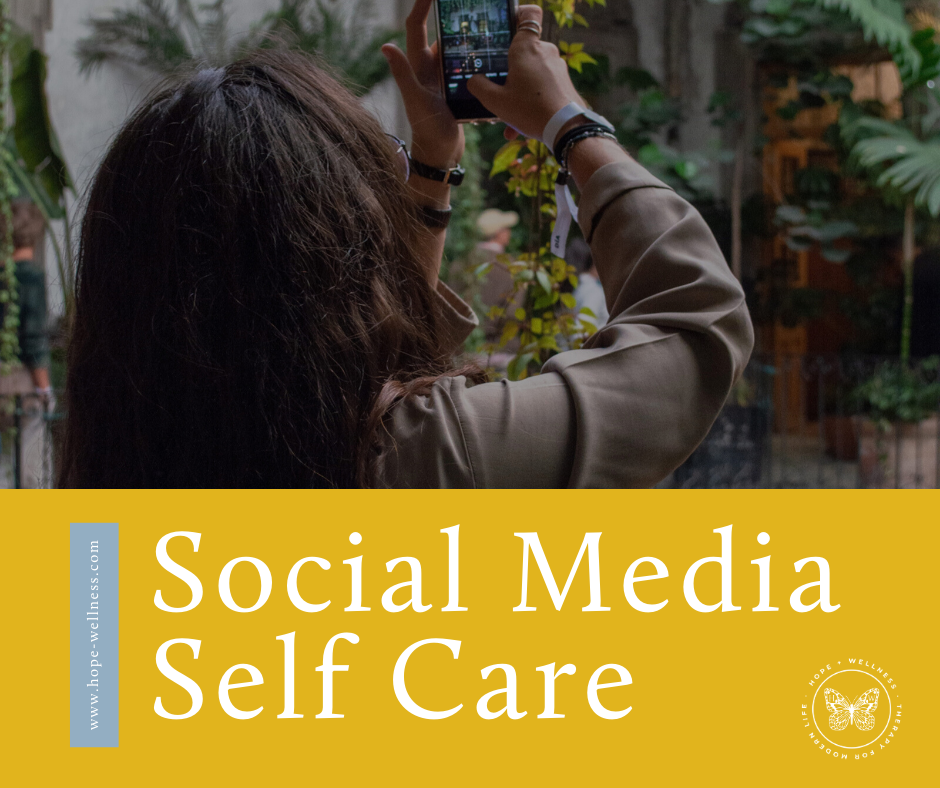5 Ways to Deal with Rumination
5 Ways to Deal with Rumination
Have you ever felt like you were stuck in the same thought loop, no matter how distressing it is?
When you get stuck in a never ending loop of negative thoughts about a situation, you might be ruminating. This distressing pattern of thinking can be hard to break out of, but there are things you can do to help yourself when you find yourself stuck in rumination.
What is rumination?
Rumination is “obsessional thinking involving excessive, repetitive thoughts or themes that interfere with other forms of mental activity.”
Rumination is different from other kinds of thinking in that it keeps you focused on the negative and is hard to break out of. Rumination becomes a problem when you can only focus on the negative parts of situations or when your thoughts become excessive or overly repetitive, because it causes distress.
The key to rumination is that no action is taken to lower the feelings of distress - it just becomes a cycle of obsessive thinking without a solution.
Why is ruminating unhelpful?
It's not always a bad thing to focus on something. Sometimes, it’s helpful to do some deep thinking about a situation. Thinking about things from the past can help you learn lessons from past mistakes and increase your level of self-awareness. Considering future situations can help you prepare yourself for what’s coming.
Ruminating doesn’t help with any of these things, because it relies on inaction. When you don’t take action to either apply the lessons you’ve learned or prepare yourself for what’s coming, it’s hard to get out of this negative thought process. Rumination keeps you stuck in a state of worry and distress, instead of allowing you to move forward.
The next time you get stuck ruminating on a situation, remember you don’t have to stay there. Here are 5 things you can do to stop ruminating and lower your distress:
Distract yourself
When something distressing is happening to you, it’s okay to distract yourself from it. Distraction isn’t always the best solution to dealing with feelings, because it can lead to ignoring or repressing them, which can have negative consequences. When you’re stuck in a thought pattern that you can’t get out of, though, sometimes the best thing you can do is distract yourself.
Distraction can help redirect your attention onto something less distressing, so you can break the cycle of rumination. Try watching a new show or movie that has an interesting plot or something complicated you can follow to take your focus away from what’s upsetting you. You can also try exercise, listening to music or a podcast, reading a book or listening to an audiobook, chatting with a friend, making art, cleaning, doing a house project, or even taking a nap.
Make adjustments as needed
Sometimes it can be hard to break out of rumination because you wish you had done something differently. Regret is complicated, but it can feel tempting to focus your attention on what went wrong instead of what you can do to prevent it from happening again.
If this is the case for you, make a point of acknowledging what is painful about the situation. You can even say to yourself, “Wow, I wish I would have done that differently.” Instead of getting stuck in a shame spiral, though, remind yourself that there are things you can do to learn from this experience. Keep those lessons in mind and then try to forgive yourself for what happened. It might take time, but remember that everyone makes mistakes. You’re allowed to make mistakes too, and it doesn’t make you a terrible person. It just makes you human.
Try a grounding or mindfulness exercise
Rumination is tricky because we often don’t realize it’s happening until we’re in the middle of it. One way to help is to try to bring yourself back to the present moment. A mindfulness practice can be helpful with this, as can grounding exercises.
Not only will grounding or mindfulness help in the moment, practicing them regularly can help you in the future to redirect your thoughts before you get too distressed. Grounding can help you become reacquainted with your body in the present moment. One common grounding practice is to use your senses to focus on what’s happening in the moment. Try naming 5 things you can see, 4 things you can hear, 3 things you can feel, 2 things you can smell, and 1 thing you can taste. This exercise will not only distract you from the distress of rumination, but it will also help you step out of the negative thought pattern you’re stuck in. The more you practice the easier it will be to use these skills when you need them!
Stick to a time limit
Even when we have the best intentions to not ruminate on something, it’s easy to find yourself stuck in your thoughts. If you really feel like you need to ruminate on something for a bit, give yourself permission to do so, but set a time limit for yourself.
Remember, rumination isn’t actually productive or helpful, it just keeps you stuck in the negative. Give yourself 20 minutes to focus on this, and then when the timer goes off, stick to your boundary and move on to something that will actually be helpful.
Trust and believe in yourself
Rumination can lead to lowered self-esteem because it keeps you second guessing yourself instead of moving forward. One powerful way to interrupt rumination is to remind yourself that you are capable and to believe in yourself. Think about it: you’ve survived every bad situation or mistake you’ve ever made. Even if you’d do things differently, you still made it through. You’re much more capable than you think and give yourself credit for. Having the confidence in yourself that you can get through anything can be like armor that protects you from the negative effects of rumination. So, you made a mistake. Who hasn’t? You’re still amazing, and you can still handle everything that comes your way.











If travel triggers anxiety for you, you’re not alone! There are things you can do to manage travel anxiety and still enjoy your trip.